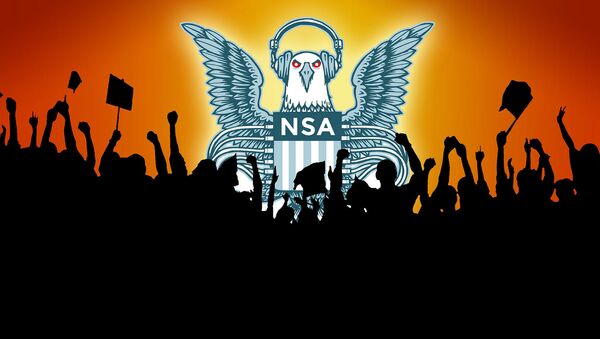WASHINGTON (Sputnik) — The USA Freedom Act is a step in the right direction by ending the bulk collection of phone records of all Americans, but it leaves many areas of potential abuse, US experts on surveillance and civil rights told Sputnik.
On Tuesday, US President Barack Obama signed the USA Freedom Act into law.
“The new law would end such bulk collection,” Georgetown University Professor of Constitutional Law David Cole told Sputnik. “The phone records remain with the phone companies, and the NSA [National Security Agency] can get them only when it has specific reasonable suspicion that a particular phone number is tied to a terrorist,” Cole added.
Such a set-up, Cole added, is a major improvement.
Cole rejected the claim of Senate Majority Leader Mitch McConnell that the new act was too weak for counterterrorism purposes.
“The NSA supported the bill, and certainly would not have if they thought it would be ineffective,” he said.
“It's also important to keep in mind that in 14 years of collecting virtually every Americans' phone records, the program did not stop a single terrorist attack or bring a single terrorist to justice,” Cole pointed out.
Marcy Wheeler, a blogger and expert on the legal aspects of the US War on Terror and its effects on civil liberties, also welcomed the new law as a potential improvement.
“It will get the government out of holding the bulk of phone records [within the United States],” she said.
“Most of the bulk collection was done under Executive Order 12333 [issued by former President Ronald Reagan],” she noted. “There are some important reforms, (but) it doesn’t touch back on searches under Section 702 of FISA data.”
Wheeler also pointed out that conversations on international calls will remain in the phone companies’ data banks for years to come. “By putting in your name, the government can [still] retrieve any set of calls it wants to,” she added.
Wheeler also expressed caution the new law would do much to end or restrict many government surveillance activities that remain secret.
“There are a lot of areas where there’s reason to suspect a lot of problematic things are going on,” she said. “Some of them we suspect. Some of them we don’t know about.”
Wheeler concluded by saying she is sceptical the law will do everything it is supposed to. “If it does, it will be a very useful first step.”
Veteran NSA official turned whistleblower William Binney in a statement issued on Wednesday agreed that the new law did not go far enough.
"While this is a step in the right direction, it doesn’t go nearly far enough,” he said. “It doesn’t stop activity under [executive order] 12333 that does acquisition right off the fibers [fiber-optic cables] — it’s an automatic flow to the NSA. It’s both content and meta-data.”
Under the new law, the NSA must transfer its telephone metadata collection program into the hands of private telecommunications companies over the next six months.

